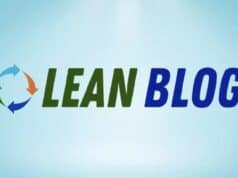No, this isn't a 5S discussion. Every once in a while, I peek at the blog servers stats to see what people search for (on Google, for example) before getting here to the blog. This is just a sample that covers the past week or so.
#1 term: “lean manufacturing”, that makes sense. “lean manufacturing blogs” is right up there too.
We're searching for lean people, in order: Steven Spear, Jim Womack, Norm Bodek, David Meier, Taiichi Ohno, and Tom LaSorda.
We're searching for “lean stuff”: lean posters, lean articles, lean TV, lean examples, lean software, lean manufacturing benchmarks, and a list of companies that use lean.
Someone was searching for a “free kanban formula.” I hope they found it without paying (although many good lean books, with that formula, are worth paying for). Two people were also looking for “free kaizen training slides.” Part of me wants to say you get what you pay for :-)
I'm happy to see a number of people searching for “respect for people and lean”…. hopefully because they want to instill that, not because they're complaining about not having it where they work.
People are still searching for “12,000 paid not to work” as they were searching heavily for two weeks ago.
A more profound question was asked, “Is human error accepted in 5 Why's?” This question is directed at the lean problem solving methodology of asking “why” 5 times to help get to a root cause problem. Human error, or making a mistake, is likely a cause of many mistakes, but it's not usually the answer to the 5th why nor is it usually the root cause. We might ask why the human error was not prevented, which would drive us to a root cause and a solution. I was taught that the “respect for humanity” piece of the Toyota Production System included the idea that people make mistakes, even the best of us. It's for this reason that error proofing (or “Poka Yoke”) and Jidoka are such core lean concepts.
Someone also searched for “Ford's future.” Who knows?!?! :-)
Please scroll down (or click) to post a comment. Connect with me on LinkedIn.
Let’s work together to build a culture of continuous improvement and psychological safety. If you're a leader looking to create lasting change—not just projects—I help organizations:
- Engage people at all levels in sustainable improvement
- Shift from fear of mistakes to learning from them
- Apply Lean thinking in practical, people-centered ways
Interested in coaching or a keynote talk? Let’s start a conversation.








Hi Mark,
I get the response of “human error” all the time when problem solving. It is similar to an example I shared in the Toyota Way Fieldbook when the “why” ends with a “conclusion” that is not correctable. People will say, “Oh, it’s human error. That is to be expected! What can you do about that?” (Meaning why bother trying when you know that people are going to make mistakes anyway.) If the answer is changed a little- “Why does the error occur? Answer- becaues it can!” So then we can ask “How could it be possible to prevent the error?”
The trick is to answer the question in a way that leads to something you DO have control over.
[…] Mark Graban on September 28, 2006 · 2 comments From the Lean Blog server logs…. I did this back in February and here’s what people are searching for today…. not the most popular searches, but the […]